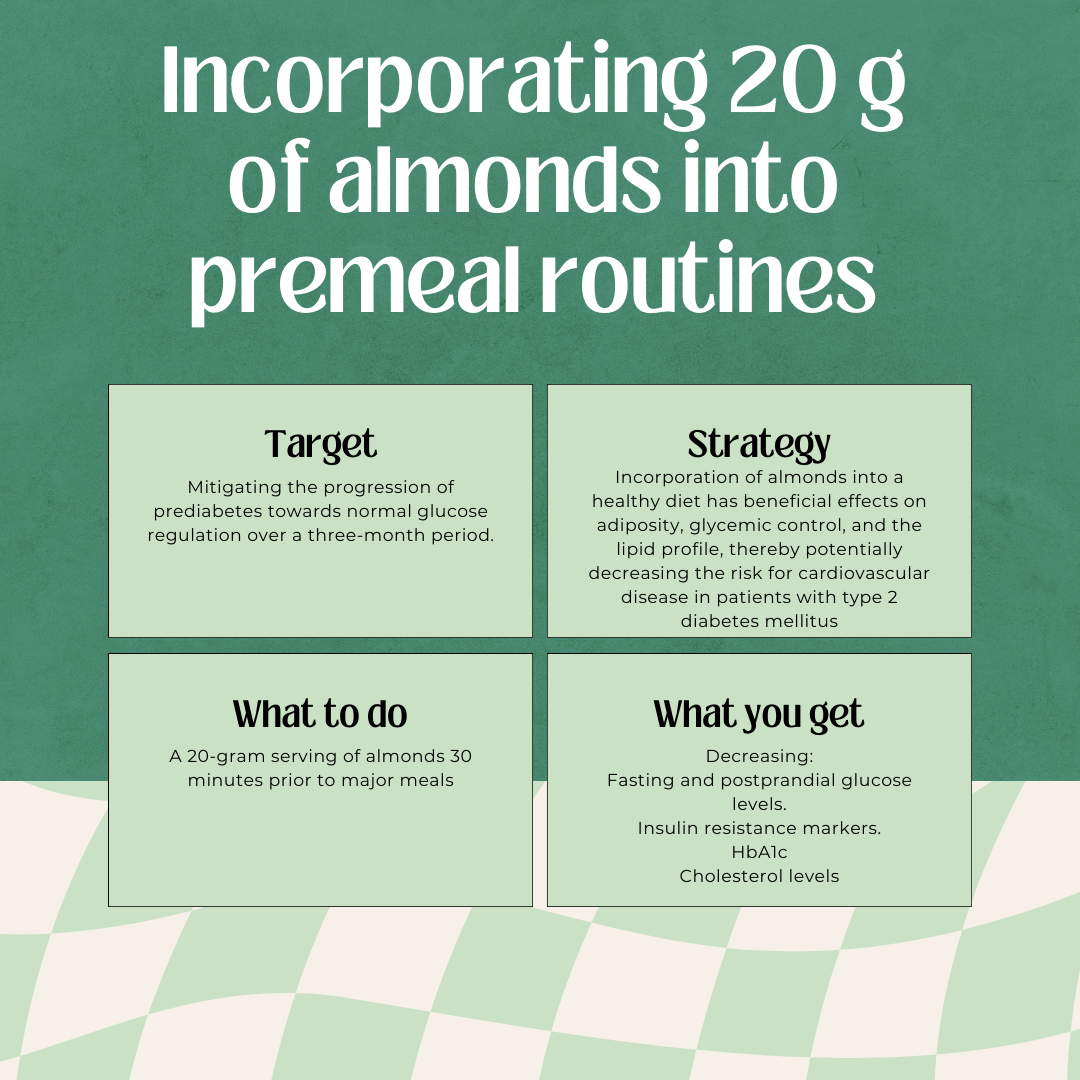Almonds consumption and prediabetes

In the pursuit of effective dietary interventions for managing prediabetes, a recent study delved into the impact of incorporating almonds into premeal routines.
This study, a free-living randomized controlled open-label parallel arm investigation, examined the effects of consuming a modest 20-gram serving of almonds 30 minutes prior to major meals over a span of three months.
With a cohort of sixty-six participants aged 18 to 60 years, all diagnosed with prediabetes, the study aimed to scrutinize changes in anthropometric, glycemic, and metabolic parameters.
Notably, thirty participants completed the study in each arm. The findings, gleaned through 'intention-to-treat' analysis, shed light on compelling outcomes.
Significant reductions were observed in various metrics including body weight, BMI, waist circumference, skinfold measurements, and enhancements in handgrip strength among those in the treatment arm compared to the control arm.
Furthermore, a thorough examination of blood parameters revealed noteworthy decreases in fasting and postprandial glucose levels, insulin resistance markers, HbA1c, and cholesterol levels, indicating a holistic improvement in metabolic health.
Most strikingly, a promising 23.3% of participants in the treatment group experienced a reversal to a normoglycemic state, a rate comparable to conventional medication.

These findings underscore the potential of incorporating a modest amount of almonds into premeal routines as a viable strategy for mitigating the progression of prediabetes towards normal glucose regulation over a three-month period.
Compared with subjects in the control diet, those in the almond diet had lower levels of fasting insulin, fasting glucose, and homeostasis model assessment of insulin resistance index, respectively.
This results suggested that incorporation of almonds into a healthy diet has beneficial effects on adiposity, glycemic control, and the lipid profile, thereby potentially decreasing the risk for cardiovascular disease in patients with type 2 diabetes mellitus.
Sources:
- Gulati, S., Misra, A., Tiwari, R., Sharma, M., Pandey, R. M., Upadhyay, A. D., & Sati, H. C. (2023). Premeal almond load decreases postprandial glycaemia, adiposity and reversed prediabetes to normoglycemia: A randomized controlled trial. Clinical Nutrition ESPEN, 54, 12–22. https://doi.org/10.1016/j.clnesp.2022.12.028
- Nishi, S. K., Viguiliouk, E., Kendall, C. W. C., Jenkins, D. J. A., Hu, F. B., Sievenpiper, J. L., Atzeni, A., Misra, A., & Salas-Salvadó, J. (2023). Nuts in the Prevention and Management of Type 2 Diabetes. Nutrients, 15(4), 878. https://doi.org/10.3390/nu15040878
More about Almonds...
Tree Nuts Snacks vs High Carb Snacks

